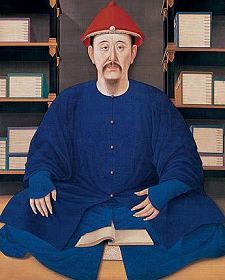(Clearwisdom.net) Emperor Kangxi was serious about minding his thoughts. Below is his view of kindness that he wrote about in the book Tingxun Geyan. Since it was written in an ancient writing style using archaic words, I would like to try to interpret in plain words, with my understandings, what Kangxi said in three different memoirs.
Kangxi
Each person has a mind. When a thought is generated, it can be righteous or evil. One can recognize an evil thought and correct it. If so, one will remain on the righteous path. The book Shangshu indicates that even a saint, when harboring an evil thought, can lose control, while an ordinary person who focuses on rejecting evil thoughts can become a saint. Kangxi established a premise: A thought not urging any action may be left alone, but for a thought that pushes through, judgment must be exercised to discern righteous from non-righteous. In ancient times, people were mindful of their thoughts. When a thought appeared, the people made a decision whether to accept or reject that thought before it attached itself to them and became an emotion. Using this method, thoughts became relatively easy to control and people remained on righteous paths.
As a person, one should seek inner joy. When there is inner joy, one automatically holds an auspicious view, because an inner joy tends to generate thoughts of compassion. On the other hand, when one is in an angry mood, evil thoughts tend to show up. For this reason, in ancient times, people said: “When a kind thought is generated in a person, a propitious god will accompany him, even though he has not done anything good. Similarly, when an evil thought is generated in a person, an evil spirit will follow him, although he has not done anything wrong.”
When a person holds onto righteous thoughts, heaven will reward him with good fortune. Today many people hold a rosary and worship Buddha because they want to be good. However, they do not achieve any real benefits unless they remove evil thoughts from their minds.
Category: Traditional Culture






